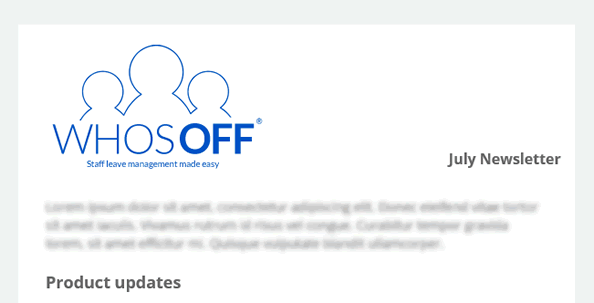Over 9.6 million professionals have been furloughed in the UK since the start of the coronavirus outbreak in March 2020, and the scheme is far from over. As the country battles further lockdowns and restricted movement over the winter, employees that have returned to work may find themselves going back onto furlough – and it’s not just their salary that will be affected.

Whether you’re an employer or an employee, if you’re involved in the furlough scheme, it’s important to understand how it impacts other aspects of work operations. With the holiday year coming to an end for many companies, staff need to know their annual leave entitlements during furlough as soon as possible, so nobody misses out on valuable paid time off.
New chapter, same challenges
Earlier this year, we looked at the issue of how furlough impacts annual leave, as workers up and down the UK found their holiday plans changing as a result of coronavirus.
For a while it looked like things might get back to something resembling normal, as half of furloughed employees had returned to work by August 2020. However, November’s national lockdown moved the goal posts once again – and with the Chancellor of the Exchequer, Rishi Sunak, announcing the extension of the furlough scheme into March 2021, disruption is likely to continue.
How does furlough affect employees’ holiday rights?
If you’re an employee that has recently been furloughed again, or put onto the furlough scheme for the first time, the good news is that it doesn’t impact annual leave entitlement. You still receive the exact same number of days’ holiday as if you were working your contracted hours.
You are also entitled to be paid in full for time off. So if you are on 80% salary during furlough, your employer will need to ‘top up’ the remaining 20% for any annual leave you book – which makes it an ideal way to cover the financial gap while you’re unable to work.
However, company rules around using annual leave may change while you are furloughed. For example, your employer has the right to cancel holiday booked during this period, provided they tell you within a required notice period.
Equally, your employer can ask you to use annual leave during furlough, to avoid you taking further time off when you’re back at work. With many companies’ holiday years running out at the end of December, bosses may encourage furloughed staff to use all their remaining holiday in the next few weeks, rather carrying more time into 2021.
How does furlough affect employers’ holiday rights?
If you’re an employer with staff on furlough, these same regulations apply, but it’s vital that you think about the financial and emotional impact of the policies you enforce.
For example, while asking employees to take unused holiday during furlough means they’re not out of the office at a later date, you will have to pay the 20% difference between their government entitlement and full salary. Additionally, valued workers with nowhere to go and nothing to do may resent being told they have to take time off when they’ve been furloughed.
Taking these considerations into account, you may decide that a better option is giving staff the opportunity to carry over their remaining holiday entitlement into 2021. But this needs to be tracked and managed carefully, to ensure that ‘bumper’ allowances don’t get in the way of business operations in the year ahead.

It's also worth noting that the Working Time Regulations 1998 have been amended by the government in light of COVID-19, allowing professionals in key industries to carry over holiday for the next two years. If you’re planning to factor this into your annual leave policy, make sure your team knows that they have longer than usual to book unclaimed time off.
Coordinating annual leave during furlough
With so many variables surrounding holiday under furlough, the best thing company leaders can do is invest in the tools to gain full, flexible control over how annual leave is coordinated.
Online holiday planning software has proven incredibly valuable to businesses this year, as it improves the speed, accuracy and visibility of managing time off. For example:
- Introducing a digital holiday calendar means staff can log on from home to check how much leave they are entitled to, what time they’ve got booked off, and who else is off – cutting out unnecessary communications
- All leave requests are paperless, so managers and HR staff will receive an email notification if someone wants to make or change a holiday booking, and they can respond straight away
- It’s easy to see at-a-glance how much annual leave each team member has remaining this year, to identify who needs to start booking time off to avoid a backlog
- Staff holiday entitlements can be updated individually to reflect their unique circumstances; for example if you allow people to carry over any unused leave from 2020, not everyone will have the same allowance in 2021
And because the system is accessible online, it doesn’t matter if people are at home, in the office, working or furloughed; they can check the holiday calendar whenever they need to.
Start the new holiday year with a clean slate
With COVID-19 set to disrupt the workplace for several months to come, now is an ideal time for companies to invest in leave management software. As the holiday year comes to an end, it gives you the chance to start 2021 with a clean slate – so your team knows exactly where they stand, and how much time they can take off over the next twelve months.

WhosOff has helped customers manage over half a million (500,000) users since we launched in 2005, enabling them to improve the way they manage time off. We’d love to help you in the year ahead.
Get in touch to find out how WhosOff makes leave management simpler, or book a free trial to test it out for yourself.
Contact our dedicated team Book your Free Trial
Photos by Priscilla Du Preez/Markus Winkler of Unsplash.com




